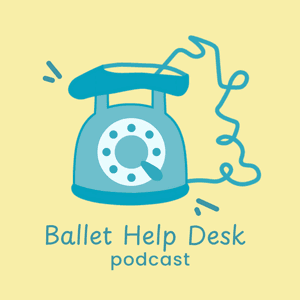In this episode ofAthletistry Ballet Evolution, Shane Wuerthner takes a deep dive into the world of ballet competitions. Do they truly pave the way for a successful career, or are they just another high-stakes performance that rewards tricks over artistry?
Shane shares his personal journey through the competition circuit—from his early days in tap to major ballet competitions like YAGP and the Helsinki International Ballet Competition. He reflects on the lessons learned, the pressures of competing, and why he ultimately realized that winning wasn’t the key to his professional career.
Through candid storytelling and expert insight, Shane explores:
- Thereal purpose of ballet competitions and their impact on young dancers
- How competition cultureshapes or limits artistic growth
- Why networking andbeing seen by industry professionals matters more than a medal
- The stark contrast betweencompetition success and company life
Whether you’re a dancer striving for a gold medal, a teacher guiding students through the competitive landscape, or a ballet lover curious about the inner workings of the industry, this episode challenges common perceptions and offers a fresh take on what truly makes a professional dancer.
Tune in, share your thoughts, and join the conversation! Do you think competitions are essential for success? Let’s discuss!
Takeaways:
Competitions can provide valuable exposure for young dancers.
Winning isn't everything; the experience matters more.
Artistic integrity should be prioritized over competition results.
The pressure of competition can be damaging to young artists.
Ballet is about storytelling, not just technical skill.
Group performances should be valued in competitions.
The process of preparation is as important as the outcome.
Competitions can foster networking opportunities in the industry.
Dancers should focus on their unique artistic voice.
Rethinking competition formats could enhance the ballet experience.
Chapters
00:00 The Role of Competitions in Ballet
10:10 Personal Experiences with Competitions
20:10 The Value Beyond Winning




























